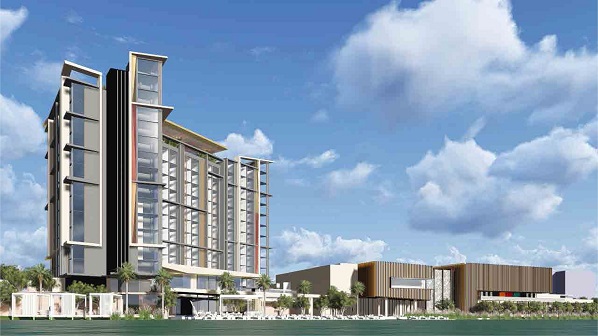Mövenpick Hotels moves into Nigeria with Abuja property

Mövenpick Hotels & Resorts has revealed plans to open its first property in Nigeria, the largest economy in Africa.
The company has signed a landmark deal with Queen Amina Garden Ventures, a wholly owned subsidiary of Urban Shelter, a prominent Nigerian property development company, to manage the 250-key Mövenpick Hotel and Conference Centre Abuja, marking another milestone in its ambitious African expansion strategy.
With a projected launch date of early 2019, the upscale hotel will be Mövenpick Hotels & Resorts’ third property to open in West Africa.
Located in the Nigerian capital’s desirable Jabi Lake district, an upmarket residential area undergoing rapid development, Mövenpick Hotel and Conference Centre Abuja will offer guests a peaceful lakeside setting while also offering excellent road links to the nearby international airport and city centre.
ADVERTISEMENT
The property will be a focal point of The Queen Amina Garden, a stunning contemporary leisure and entertainment destination currently under construction, designed to cater to Nigeria’s growing affluent society and international guests, with key features including a retail promenade and residences.
“Nigeria is Africa’s economic powerhouse with a GDP of $568.5 billion and a population of 177.5 million in 2014, according the World Bank.
“It is the world’s 20th largest economy, its eighth largest oil exporter and by 2050, will become the third most populated nation after China and India with an estimated 440 million inhabitants,” said Alan O’Dea, senior vice president Africa, Mövenpick Hotels & Resorts.
“Opening a property in the thriving modern capital, Abuja, the country’s political hub, home to foreign embassies, global oil exporting companies as well as OPEC’s regional headquarters, is a strategic move that truly capitalises on the city’s strong growth in trade and business.”
Mövenpick Hotel and Conference Centre Abuja will also cater to the capital’s swelling population with some areas of the city witnessing growth of between 20 per cent and 30 per cent annually.
One million people live in Abuja, rising to four million if you take into account its suburban areas.

